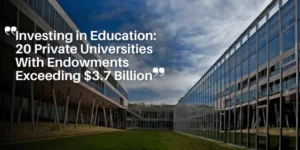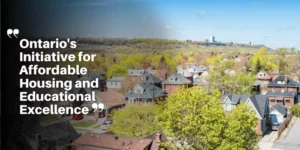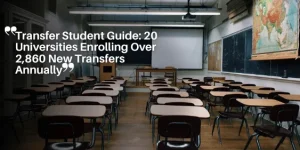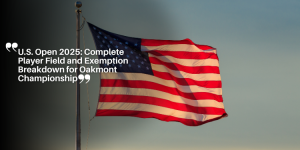Ivy League Revolution: How Elite Universities Are Redefining Their Role in Society
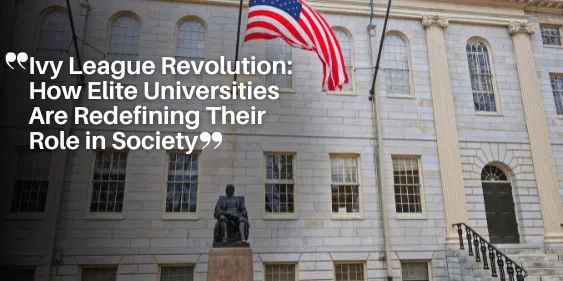
Shift from Traditional Academia to Engines of Social Change
The Ivy League institutions, long perceived as beacons of academic rigor, are now carving a new path as key players in societal transformation.
Historically known for their secluded ivory towers and scholarly pursuits, these universities are embracing a broader societal role.
Their metamorphosis reflects the pressing need to tackle complex global issues, positioning them as incubators for social change.
This paradigm shift is not just a trend but a strategic response to the demand for real-world impact and societal relevance.
Balancing Academic Excellence with Societal Engagement
Balancing traditional academic excellence with a pronounced societal role presents a unique challenge.
Ivy League schools are striving to integrate social impact initiatives without sacrificing academic rigor.
This delicate equilibrium is vital to maintain their esteemed reputation while positioning themselves as agents of change.
The integration of these initiatives is designed to foster a learning environment that promotes intellectual growth alongside social responsibility, reflecting the universities’ commitment to molding well-rounded, socially conscious individuals.
Adapting to Meet Real-World Challenges and Demands
The adaptation of these institutions to real-world demands involves a multifaceted approach.
They are increasingly focusing on interdisciplinary research, community engagement, and partnerships with various sectors to address societal issues effectively.
This evolution is not merely about expanding their influence but about aligning their educational practices with the needs of the modern world. The drive towards societal engagement is reshaping curricula and research agendas, ensuring that graduates are not only knowledgeable but also equipped to apply their skills to real-world problems.
The journey of these esteemed universities from pure academia to societal changemakers poses critical questions about the future of higher education.
As they continue to evolve, the balance they strike between these dual roles will shape their impact on society and define the next chapter of their storied history.
Expanding Influence Beyond Campus Borders
Impact on National and International Policies
Ivy League institutions have a storied history of influencing national and international policies.
Their research often serves as a basis for legislation, and their faculty are frequently sought after for their expertise.
This is not just about academic prestige; it’s about the real-world impact of scholarly work.
For instance, public health initiatives worldwide have been shaped by research coming out of these universities.
This influence extends from drafting policy papers to advising foreign governments, making Ivy Leagues vital players on the global stage.
Shaping Public Opinion and Power Dynamics
Another significant area of influence is public opinion and power dynamics.
Whether through published research, expert commentary, or public lectures, Ivy League faculty members often find themselves in the media spotlight. They play a crucial role in shaping debates on issues ranging from climate change to income inequality.
This contributes to their outsized influence, both admired and criticized, in steering societal narratives and public discourse.
Scrutiny and Criticism of Outsized Influence
However, this influence does not come without scrutiny. Critics argue that the Ivy League’s status can contribute to a form of elitism, where policies and public opinion are disproportionately shaped by a few privileged voices.
This outsized influence can marginalize other perspectives, leading to calls for greater diversity in thought leadership.
These criticisms underscore the necessity for Ivy League institutions to strive for inclusivity and transparency in their endeavors.
As Ivy League universities continue to expand their influence, they must balance this with a commitment to equity and diversity, keeping their foundational mission of academic excellence intact.
Addressing Equity and Diversity Concerns
Efforts to Increase Accessibility and Inclusivity
Ivy League institutions face mounting pressure to democratize their historically exclusive environments.
Increased accessibility and inclusivity are not just buzzwords; they are imperatives for remaining relevant in a diverse and changing global landscape. To bridge gaps, these universities have initiated several actions:
- Financial Aid Expansion: Significant funds have been allocated to financial aid programs to ensure that economic barriers do not restrict access to education. This allows a wider demographic of students to attend these prestigious institutions.
- Outreach Programs: Partnering with underserved high schools and communities, the Ivy League works to attract a varied applicant pool. By investing in early education programs, they hope to cultivate future students from diverse backgrounds.
- Inclusive Curricula: The inclusion of diverse perspectives within their academic programs is a growing priority. Courses aimed at exploring different cultures, histories, and viewpoints enrich the learning environment for all students.
Challenges in Maintaining Academic Rigor While Promoting Diversity
Integrating inclusivity and maintaining academic rigor is a tightrope walk. The journey involves:
- Holistic Admissions: Beyond test scores and GPAs, admissions now weigh extracurricular achievements, personal statements, and adversity faced. This comprehensive review aims to give a fuller picture of potential.
- Retention Programs: Support services such as mentoring, tutoring, and counseling are essential to help retain diverse students. Emphasis is placed on ensuring these students succeed academically and socially.
- Curriculum Reform: Professors face the challenge of designing courses that uphold high academic standards while being accessible and engaging to students from varied backgrounds.
Balancing Social Impact Initiatives with Core Educational Mission
Integrating social impact initiatives into educational programs without compromising academic integrity involves:
- Community Partnerships: Collaborating with local organizations helps students gain practical experience while addressing societal issues. Such partnerships allow students to apply classroom knowledge in real-world settings.
- Research with Purpose: Faculty are encouraged to pursue research that not only pushes academic boundaries but also addresses pressing social issues. This dual focus ensures that their work benefits both the academic community and society at large.
- Service Learning: Many courses now include service learning components, where students participate in community service as part of their coursework. This builds a sense of social responsibility while enhancing academic learning.
The journey towards a more equitable and inclusive environment is ongoing, laden with complexities and challenges.
However, Ivy League institutions are making strides in ensuring that their educational opportunities are accessible to all, that they maintain high academic standards, and that their social impact initiatives align with their core mission.
Redefining the Value of an Ivy League Degree
Changing Perceptions of Prestige and Success
An Ivy League education has long been viewed as a golden ticket to success.
Traditionally, a degree from Harvard, Yale, or Princeton was seen as a symbol of intellectual prowess and social privilege.
However, this perception is being reexamined. The job market’s evolving landscape and societal values are shifting attention away from educational pedigree towards demonstrable skills and adaptability.
Shift Towards Prioritizing Skills and Adaptability Over Pedigree
Employers today prioritize critical thinking, problem-solving, and adaptability.
In response, Ivy League institutions are evolving their curricula to focus on these skills. The emphasis is now on:
- Real-world problem-solving
- Hands-on experience through internships and research projects
- Development of soft skills like communication and teamwork
By adapting their educational frameworks, these universities aim to produce graduates who are not just book-smart but also equipped to tackle dynamic professional challenges.
Reevaluating the Connection Between Ivy League Education and Career Outcomes
The direct correlation between an Ivy League degree and career success is being reevaluated.
While a prestigious degree once guaranteed a lucrative job, the reality is more nuanced today. Graduates now face a highly competitive marketplace where:
- Networking and internships often play a crucial role
- Continued learning and adaptability are essential for career advancement
This necessitates a broader educational approach where traditional academic excellence meets practical skill sets, preparing students to thrive in diverse environments and unpredictable markets.
As Ivy League institutions continue to adapt, they reaffirm their commitment to academic excellence while addressing the growing need for skill-based education. This strategic shift is pivotal for maintaining their relevance and leadership in the ever-changing educational landscape.
Fostering a Holistic Approach to Education
Integrating Critical Thinking and Real-World Problem-Solving
The Ivy League institutions are well-known for their emphasis on rigorous academic scholarship, but they are now actively integrating critical thinking and real-world problem-solving into their curricula.
This shift stems from the recognition that students need more than just theoretical knowledge to thrive in today’s rapidly changing world.
By incorporating interdisciplinary studies and project-based learning, these universities are equipping their students with the skills necessary to tackle complex, real-world challenges.
For instance, universities are encouraging students to engage in collaborative projects that address societal issues.
This hands-on approach not only enhances critical thinking but also fosters a sense of social responsibility. Such initiatives ensure that graduates are not only knowledgeable but also capable of applying their learning to make a tangible impact.
Developing Soft Skills Alongside Academic Knowledge
Soft skills, such as communication, teamwork, and emotional intelligence, are increasingly being recognized as essential components of a well-rounded education.
Ivy League institutions are thus placing greater emphasis on developing these skills alongside academic knowledge.
Extracurricular activities, leadership programs, and community service projects are just a few avenues through which students can hone these abilities.
These experiences are designed to complement traditional academic learning, promoting a balanced development that prepares students for diverse career paths.
By nurturing both the intellectual and interpersonal aspects of their students, Ivy League universities aim to produce graduates who are adaptable and effective in various professional environments.
Preparing Students for a Rapidly Changing Job Market
The job market is evolving at an unprecedented pace, with new industries and roles emerging regularly.
In response, Ivy League institutions are focusing on preparing students for this dynamic landscape.
They are encouraging a more entrepreneurial mindset, offering courses in innovation and technology, and providing resources for startup incubation.
Moreover, partnerships with industry leaders enable students to gain insights into current market trends and demands.
Internships, co-op programs, and mentorship opportunities are integral components of this strategy, giving students the practical experience and professional connections they need to succeed.
By fostering a holistic approach to education, the Ivy League is ensuring that its graduates are not only academically proficient but also resilient, adaptive, and equipped with the skills to navigate and lead in an ever-changing world.
This comprehensive educational model is setting a new standard for excellence, as these institutions continue to evolve and redefine their role in society.
Navigating Controversies and Public Scrutiny
Handling Leadership Transitions and Their Impact on Core Values
Leadership transitions in Ivy League institutions are often under intense public scrutiny.
The resignation of Harvard’s president, for instance, highlighted the profound impact such changes can have on core values.
New leaders bring fresh perspectives and agendas, which can either uphold or shift the institution’s long-standing principles.
It’s crucial for these universities to ensure smooth transitions that respect their heritage while embracing new visions for the future.
Leadership stability affects strategic directions, campus morale, and public perception, making it imperative to handle transitions with transparency and stakeholder engagement.
Addressing Concerns About Educational Equity and Elitism
Equity and elitism are persistent challenges for Ivy League schools. While these institutions are known for academic excellence, they also face criticism for reinforcing social and economic divides.
To combat these issues, Ivy League universities are actively working on increasing access through financial aid programs, outreach initiatives, and inclusive admission policies.
They strive to create more equitable educational opportunities without compromising academic rigor.
This balance ensures that deserving students from diverse backgrounds can thrive and contribute to the intellectual community.
Maintaining Transparency and Open Dialogue with the Public
Maintaining transparency is fundamental for Ivy League schools striving to uphold their reputations and build public trust.
This involves open communication about decision-making processes, policies, and institutional goals.
Engagement with alumni, students, faculty, and the broader public helps create a more inclusive community.
Regular town hall meetings, detailed reports, and accessible information platforms are some of the ways these universities foster an environment of trust and accountability.
Ensuring an ongoing dialogue helps address concerns as they arise and reinforces the institution’s commitment to its stakeholders.
Ivy League institutions continue to evolve, balancing their storied traditions with the demands of contemporary society.
Through thoughtful leadership transitions, committed efforts towards equity, and transparent communication, they aim to navigate controversies and maintain their positions as beacons of academic and social advancement.


